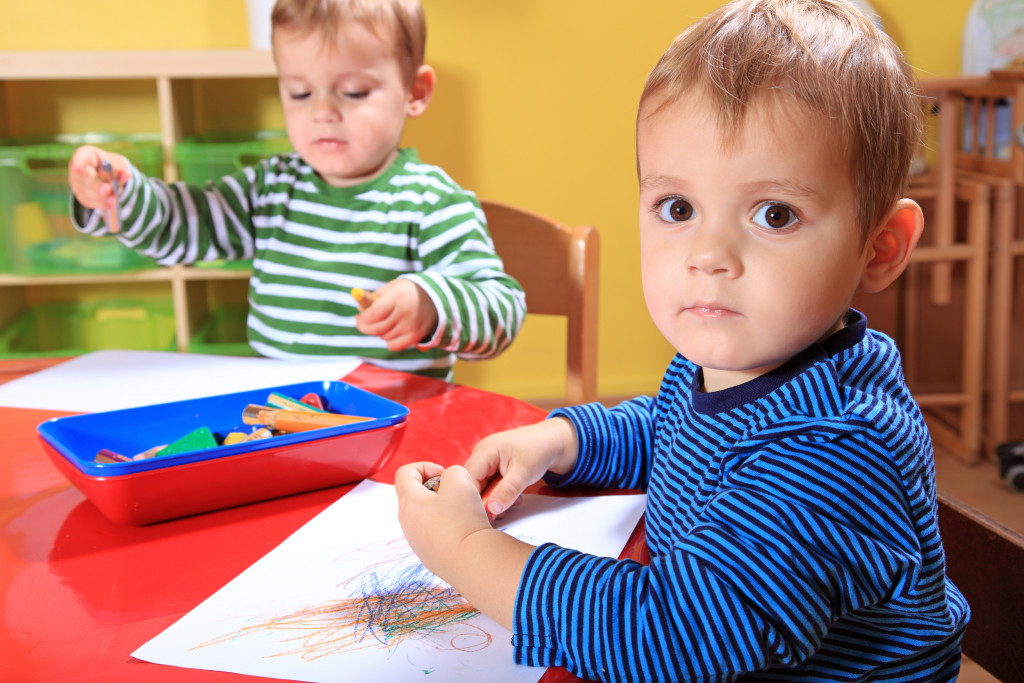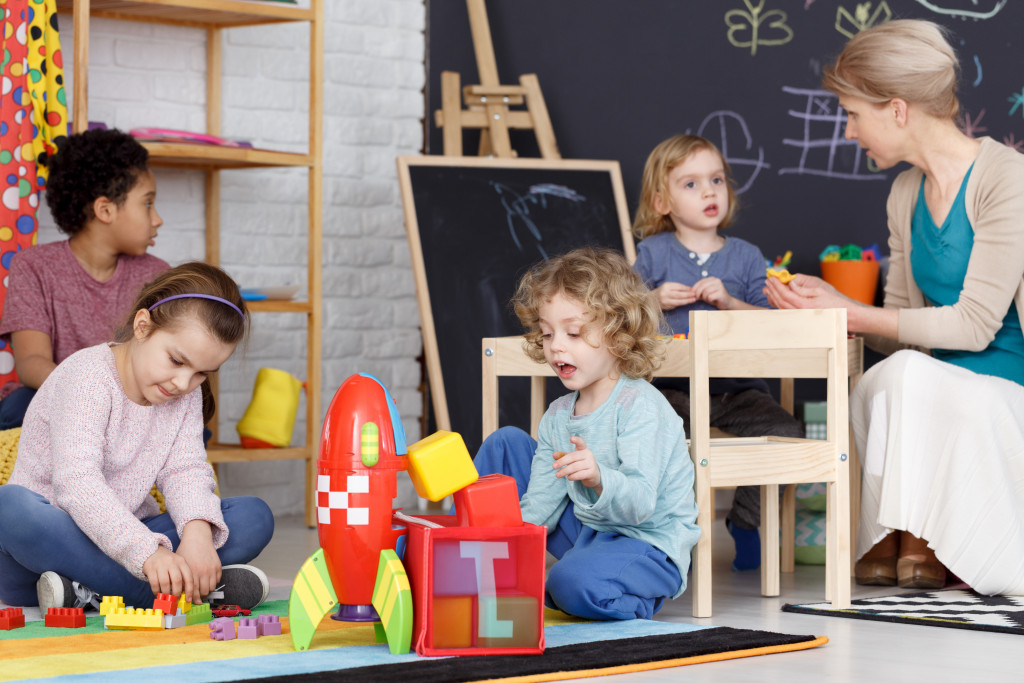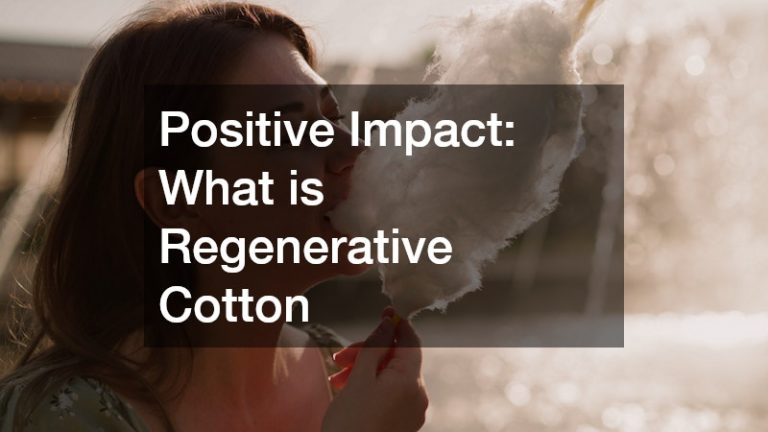The pandemic got us all complaining about staying at home. We missed our friends, traveling, and partying. Working from home turned out to be more stressful. And every day, you’re dreading what you might hear on the news.
We adults thought we had it the worst. But it’s our children who could be experiencing that. Preschool-aged kids and kindergartners should be outside, learning about nature and other people. But instead, they’re cooped up indoors with only electronics to entertain them. While it kept them safe, it might’ve also stunted their social development.
As the restrictions ease and preschools reopen, what can we expect from our kids? Will they be ready to face the world after a year of being homebound?
The New Learning Environment
If your kid already experienced being in a classroom before, they might be surprised by the new look of their classroom today. It’s no longer just tables and chairs. Instead, plastic shields have been added to their seats. The kids and their teachers have to wear face masks. Socializing by means of huddling in groups is no longer allowed.
Teachers are struggling to adapt to this new environment. But children have it worse. Though they understand the need for social distancing, it’ll be frustrating for them to follow it. Most of them aren’t used to wearing masks either. These challenges may impact not just their social lives, but their academic performance as well.
Some classrooms may remain empty too. Because the delta variant targets kids, many parents opted for online classes. Absenteeism in face-to-face classes has more than doubled. This could have devastating lifelong consequences, according to studies.
In cases like this, it’s the adults’ responsibility to make school life easier for kids. Parents, teachers, and everyone in a community that’s eligible should get vaccinated. The faster we spread immunity, the faster life can get back to normal. It won’t totally ease the restrictions, but at least, it will instill a greater sense of normalcy for little kids.

A Regress in Social-Emotional Skills
Some preschool children may experience a regress in their social-emotional skills. Since they haven’t mingled with other kids in a while, they may revert to the “me and mine” attitude. They’d refuse to share their toys and space, and struggle with following routines.
This regression could have long-term impacts on a child’s success. Preschool years are a formative period in a child’s life. If they move to kindergarten without finishing preschool first, they might be more likely to repeat a grade, require special education service, or drop out.
Every child is different, of course; not all kids will face that risk if they skip preschool. But still, the fact that there’s a risk is worrisome enough. No parent wants to see their kid struggling in school. Unfortunately, the impact of the pandemic on children will be felt for years, according to pediatrician Dr. Dmitri Christakis.
If a child has siblings close to their age, the regress in their social-emotional skills may be prevented. You can keep teaching them how to share. They’ll also be used to mingling with others. They’re luckier because when they get back to school, their social-emotional skills will likely develop smoother compared to kids without siblings.
Stress and Distress at School
After staying at home for a year, any preschooler or kindergartner can feel overwhelmed at school. They’d be surrounded by unfamiliar adults and children. Sadly, you can’t be there for them. The only way for you to check on them is when they get home.
Watch for changes in behavior, but be careful when interpreting them. For example, if your child gets home with a full lunchbox, it doesn’t necessarily mean they were too stressed to eat. Rather, they might’ve been too busy catching up with their classmates that eating wasn’t their priority. Similarly, if they seem sleep-deprived, it could mean that they were too excited to be back in school in the morning.
But of course, those behaviors could also be signs of stress and distress. Only one way to find out: talk to them. Ask questions that will provide them an opening. For example: “How did your games go today?” or “What’s the next book you’ll read?” Those questions aren’t straightforward, but they bear a message, which is “What made you happy/sad/mad today?”
There is no one-size-fits-all way to prepare children for in-person socializing again. You’re lucky if your kids are already excited and aware of the changes they would see. But if they’re the opposite, it doesn’t mean that they’d be in trouble. Yes, their regression can have long-term impacts, but they’re not unpreventable. With your support and their school’s excellent strategies for developing children, you don’t have to worry about your kid. They’ll eventually adjust and become the smart and kind person they’re meant to be.











